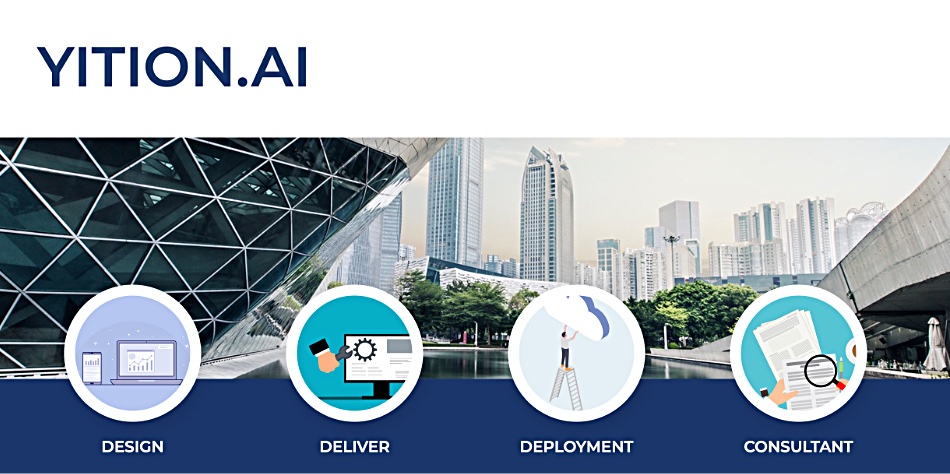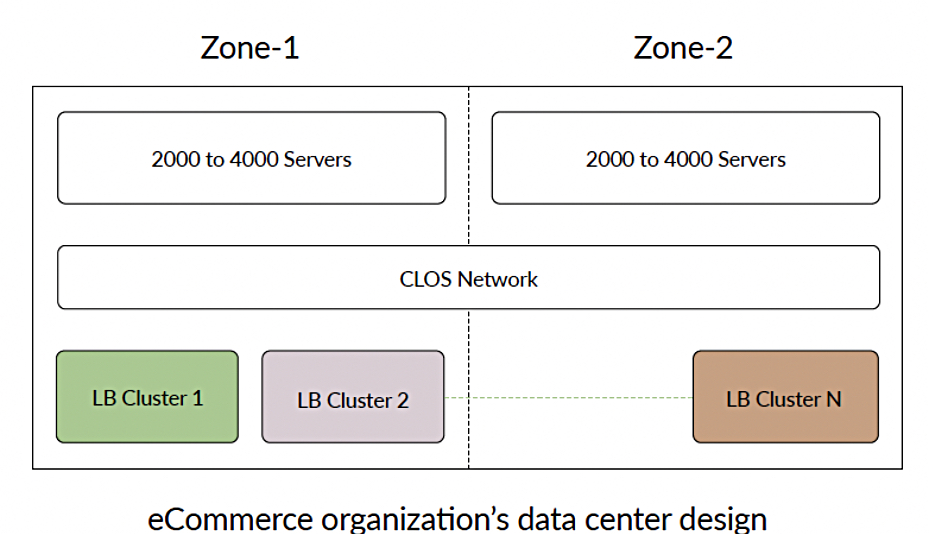Kubernetes app data protector CloudCasa has integrated with SUSE Rancher Prime via a new Rancher Prime Extension. Users can install CloudCasa agents and manage and monitor backups directly from the Rancher Prime UI. They get multi-cluster management across clouds and on-premises, a single pane of glass for VM and container management, migration across any Kubernetes distribution, and “enterprise-grade security, compliance, and governance.”
…
Flexera announced that the Spot acquisition from NetApp is complete and “now has the most comprehensive FinOps offering in the market,” which “empowers organizations and MSPs to manage cloud financial commitments, automate billing and invoicing, reduce workload costs, and optimize containers.”
…
GPU RAID card startup Graid has raised $30 million in a Series B, bring its total funding to around $50 million. The round was led by HH-CTBC Partnership, a joint venture fund between Foxconn and CTBC, alongside Yuanta Ventures, and included participation from Delta Electronics Capital, Harbinger Venture Capital, and returning investors from Graid Technology’s 2022 Series A round. Graid will use the cash for “global expansion, product innovation, and strategic partnerships, strengthening Graid Technology’s presence in enterprise and OEM markets while meeting growing demand for AI, machine learning, and high-performance computing workloads.”
…
Data orchestrator Hammerspace has partnered with Yition.ai, a Chinese company aiming to democratize AI. Yition is little known outside China. Hammerspace says Yition has “cost-effective and scalable AI storage” offerings. The integration with Hammerspace will add “the high-performance data path to power large-scale compute clusters efficiently, the data orchestration to unify data sources, and standards-based approach to use the compute, storage, and networking infrastructure of the customer’s choice.”

…
HarperDB is rebranding as Harper, “removing the database notation from its corporate name and identity. This simplified name, new brand identity, and redesigned website reflects the company’s evolution from a database vendor focused on performance, to a full stack application delivery platform that enables data architects and development teams to transform the economics of their organization through the accelerated speed and scale of data-intense workloads.”
…
Huawei’s Dr Peter Zhou, president of its Data Storage Product Line, said at MWC 2025 Barcelona that its “AI-Ready data lake breaks data silos, making data visible, manageable, and available.” Its “Data Storage provides the AI-Ready data lake solution, diverse data storage services, and the FlashEver business model, empowering carriers to turn their disordered data into high-quality assets to unlock the value of data.” Huawei has launched the “New-Gen OceanStor Dorado Converged All-Flash Storage and OceanStor A Series High-Performance AI Storage. These solutions boast 100 million-level IOPS, financial-grade reliability, and efficient AI training and inference, supporting tens of billions of daily charging services and robust mobile financial services.” The New-Gen OceanStor Pacific All-Flash Scale-Out Storage provides industry high density and low power consumption with exabyte-level scalability.
“Another new offering is the New-Gen OceanProtect All-Flash Backup Storage for data protection. The storage offers five times faster data recovery than industry alternatives. The Huawei DCS AI Solution provides a one-stop AI full-process toolchain and containerized environment, accelerating fine-tuning and large-scale deployment of AI models. The FlashEver business model provides an evolutionary, flexible architecture to enable seamless upgrades for live-network equipment.”
…
Public cloud backup storage service supplier Keepit announced the publication of its new report, “Intelligent data governance: Why taking control of your data is key for operational continuity and innovation,” which “covers the foundational importance of data control in the age of AI, with a focus on ensuring modern enterprises’ cyber resilience and compliance.” The “report finds that data governance is a key tool when striving to stay compliant as regulations such as NIS2, DORA, and GDPR are impacting organizations.” Download the report here.
…
Lightbits says a “massive online retailer, with multimillions of products in as many different categories, powers its eCommerce business with the Lightbits fast and flexible cloud data platform.” The multibillion-dollar company commands the largest share of the market in their region. The platform currently services millions of registered users, millions of daily visits, and delivers millions of shipments per month – and those numbers are increasing rapidly. “The Lightbits Cloud Data Platform forms the ideal combination to provide disaggregated, and composable storage and integrate natively with their Kubernetes environments.”

“The implementation consists of tens of clusters of 16 dual instance, high-performance nodes per datacenter – two instances of Lightbits are run on the same physical machine. This allows Lightbits to get 25-30 percent higher performance out of a single machine. Each Lightbits node consists of Lenovo ThinkSystem SR650 V2 servers with high-performance Intel 3rd Gen Xeon Scalable Processors, Intel Optane Pmem, and Intel Ethernet Adapters, and Micron NVMe SSDs. This implementation schema delivers performance and data replication advantages. This organization can leverage different replication scenarios for different workloads.”
…
Micron has enhanced its LPDDR5X memory with error correction code for the automotive market. The “LPDDR5X-optimized error correction code (ECC) scheme mitigates all system in-line ECC penalties delivering a 15 to 25 percent bandwidth increase. This new LPDDR5X-optimized ECC scheme, called direct link ECC protocol (DLEP), not only delivers increased performance but also helps LPDDR5X memory systems achieve the ISO 26262 ASIL-D hardware metric through reduced failures in time (FIT).” It “delivers approximately 10 percent lower power consumption on a pJ/b (picojoule-per-bit) perspective and a minimum 6 percent additional addressable memory space.”
…
Micron announced the world’s first G9-based UFS 4.1 and UFS 3.1 mobile storage products to accelerate AI on smartphones. The UFS 4.1 offering provides proprietary firmware features for flagship smartphones such as zoned UFS, data defragmentation, a pinned writebooster, and intelligent latency tracker. More information here.
…
Nexla has enhanced its Integration Platform, “expanding its no-code integration, RAG pipeline engineering, and data governance capabilities.” You can “integrate any data, create AI-ready data products, and deliver GenAI projects without coding, and up to 10x faster than the alternatives.” Nexla uses AI to connect, extract metadata, and transform source data into human-readable data products, called Nexsets, that enable data reuse and governance. Its agentic retrieval-augmented generation (RAG) framework lets companies implement RAG for agents and assistants without coding, and uses LLMs during each stage to improve accuracy. For example, Nexla can get context from multiple data products, use a unique algorithm to rank, prioritize, and eliminate data, and then combine the context with a rewritten query and submit it to just about any LLM.
…
OpenDrives CEO Sean Lee has reorganized the company to form two leadership teams, largely promoting existing execs. The Corporate Leadership Team (CLT) oversees overall company strategy and shareholder value, and the Senior Management Team (SMT) drives day-to-day operations and execution. Stefan Grycz joined OpenDrives as director of sales in January 2025. Joel Whitley, partner at IAG Capital Partners, said: “As lead investor, IAG is fully committed to driving OpenDrives’ success. We are confident that this leadership team will enable OpenDrives to continue its growth and out-innovate the competition. The OpenDrives software platform is poised to change how M&E and DevOps engage with data and storage in ways no one else can.”
…
Phison announced that its PCIe Gen4x4 PS5022 controller, designed for automotive applications, has become the world’s first SSD controller to receive ISO 26262 ASIL-B compliance certification. This ensures that electronic components within a vehicle can detect random failures in real-time and can transition into a safe state to support impact prevention for driving safety.
…
Data integrity supplier Precisely has a DataLink partner program to streamline the integration of the Precisely data portfolio with data from trusted providers via pre-linked datasets. Inaugural partners include Precisely, GeoX Analytics, Overture Maps Foundation, and Regrid, with additional partners coming soon. The “Data Link program transforms the traditionally complex and time-consuming process of mapping disparate third-party datasets into a seamless customer experience. Organizations no longer need to stitch together data from multiple vendors, navigate complex integrations, or evaluate dozens of disconnected datasets.”
…
Vector database supplier Qdrant has updated its Qdrant Cloud with “single sign-on (SSO), cloud role-based access control (RBAC), granular database API keys for granular RBAC, advanced monitoring and observability with Prometheus/OpenMetrics to connect external monitoring systems, and a cloud API for seamless automation.” Learn more here.
…
The Qumulo Cloud Data Fabric is available now with Qumulo 7.4.1 and “enables organizations to make any data, in any location, instantly available with total control. Customers can create data portals in under 10 seconds that enable remote users to connect to and access data anywhere in the world, as if it were local. Predictive Caching enhancements improve application performance up to 2X compared to existing solutions by inspecting data access patterns and prefetching data into the cache before a client requests it.” Customers can “Read and Write data with strict data consistency across the Cloud Data Fabric, instantly, with assured data and application correctness.” Also, “loading only folder and file metadata at the remote site improves application responsiveness while preserving WAN bandwidth.”
It’s available globally through major IT infrastructure resellers and system vendors, including Hewlett Packard Enterprise and Supermicro, distributors, and most major public clouds, with prepay and pay-as-you-go options. Pricing is based on the data stored and shared across Qumulo’s data core infrastructure. Learn more here.
…
Qumulo has partnered with large file transfer business MASV to create a high-performance, enterprise-grade data ingest and access pipeline enabling seamless petabyte-scale data ingest into Cloud Native Qumulo (CNQ). This supports large-scale AI model training and data analytics with scalable cloud-native infrastructure. Find out more here.
…
Application HA and DR supplier SIOS announced that SIOS LifeKeeper and SIOS DataKeeper clustering software have been validated for use with Cimcor’s cybersecurity offering, the CimTrak Integrity Suite. This allows Cimcor customers to “seamlessly integrate high availability and disaster recovery into their CimTrak environments, ensuring continuous protection against cyber threats and minimizing downtime in critical cybersecurity operations.”
…
View Systems, in collaboration with Alpha3 Cloud, announced the launch of Managed View AI, a comprehensive turnkey GenAI platform designed for enterprises and government organizations that need AI-driven insights while retaining full control of their data. “We are pleased to work with Alpha3, Ampere and other AI Platform Alliance members to advance enterprise AI deployment standards and practices while enabling deeper integration of our technologies,” said Keith Barto, chief product and revenue officer at View Systems. “Managed View AI allows organizations to deploy AI workloads with confidence and optimize their deployment based on specific workload requirements, with options to add GPU or other accelerator support as needed.”
…
ReRAM developer Weebit Nano has a partnership with ultra-low-power AI computing business Embedded AI Systems (EMASS). The EMASS SoC “delivers unparalleled energy efficiency and cost advantages, with best-in-class AI capacity.” Weebit ReRAM “delivers lower power, faster read and write speeds, and cost advantages compared to traditional non-volatile memory (NVMe) technologies like flash.” The combined system “can deliver new levels of performance and power efficiency for edge AI.” Attendees at the embedded world 2025 Conference & Exhibition can see a live demonstration of the integrated technologies.
…
Software RAID supplier Xinnor has partnered with Advanced HPC to implement an improved backup and restore system for a US federal agency focused on scientific research. The agency sought to address performance bottlenecks and enhance data throughput to its Spectra Logic T950 tape library and now uses a system using Xinnor’s xiRAID with 12x 30 TB and 2x 6.4 TB Gen 4 NVMe SSDs “to meet the agency’s needs for high-speed read and write capabilities, seamless integration with existing infrastructure, and scalability for future growth.” Read the case study here.








